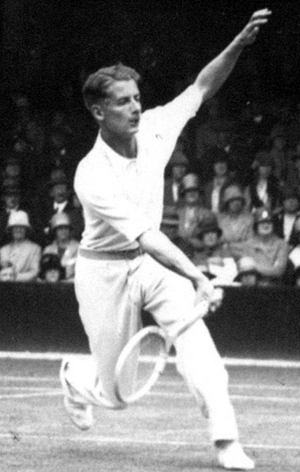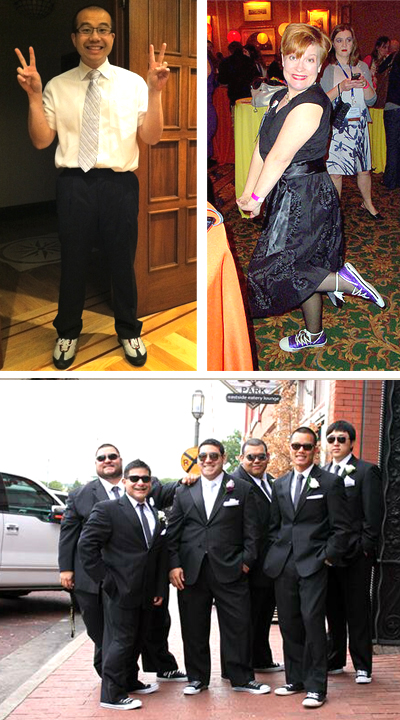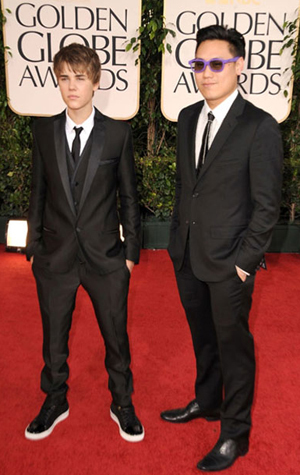 |
Organic Society
Command versus Influence
Plinio Corrêa de Oliveira
The classes that truly direct a nation are not necessarily those that have power and exercise command, but rather those who influence by means of their prestige.
What does to influence mean? I believe the root of this verb is the Latin influere - to flow into. When a river flows through an area it brings benefits: fish, water for drinking and irrigation, and, consequently, for trees that provide wood to build houses, fruits that nourish and heal, vegetables, grass that feeds herds of cattle, sheep, etc.

In the 1930s tennis shoes were used strictly to play tennis |
So, when we want to indicate that an area is profiting from all these benefits of a river, we explain saying: “Well, such-and-such a river flows through that area.” That is to say, the area is under the influence of that river. If this is not the original meaning of influence, at least it is the most appropriate image I can find to explain what influence is.
Analogously, when a person, a family or a class, through its presence and prestige, brings benefits for a group of persons or an entire people, we say that the latter are under the influence of the former.
Although in our example we only mentioned the benefits of influence, obviously social influence can be - and often is - turned toward evil as well. Imagine a swamp with its putrid miasmas, the mosquitoes that breed there and spread diseases, the damage it causes to trees and you will have a picture of what bad influence means.
Who constitutes the influential classes of a city or a country? It would be very interesting if each one of us would sketch an outline of the truly influential persons or families in his city, leaving out the media.
How were tennis shoes imposed?
To stress what influence is, let me raise a hypothesis.
Imagine if the Governor of this State or its House of Representatives were to issue this directive or decree: From this date forward, all the inhabitants of the State of São Paulo are forbidden to wear leather shoes.
If this command were issued, it would raise general indignation, either because it is a tyrannical intrusion in the private life of the citizens or because each one has the right to decide what kind of shoes he wears. Such indignation would be a good reaction, demonstrating that civil authorities have limits that they cannot overreach if they want to remain in office.
Now, consider that at a given moment a certain number of influential persons decide to wear tennis shoes, not just to play tennis, but almost all the time and in every ambience. Since this is actually what has happened, this hypothesis becomes a significant example.

Tennis shoes have become "acceptable" everywhere today - at the office, parties and solemn functions |
The start of this revolutionary maneuver was very well prepared. The characteristic young man of that starting period – encircled with the family halo of prestige and his success with girls – appeared at his college or club in tennis shoes, sending his colleagues the message that to wear tennis shoes in any ambience represented the height of joviality, modernity and bold audacity - a humorous provocation. “The future belongs to those who wear tennis shoes” is what his action implied.
So, that young man in his tennis shoes became a symbol of a transformation of spirit. Anyone who did not follow that new fashion was considered dull and dreary, a person without taste riding in the last wagon of the train of progress. And everyone understood that the moment would come when that railroad car with outdated people would be unhitched, and the train could freely continue its festive march forward.
Thus, the fear of being considered obsolete or a hillbilly induced multitudes of persons to adopt tennis shoes without any argument or discussion.
As time went on, this process accelerated and became widespread, so that today, the use of tennis shoes has become more or less the rule in any ambience. We see them at colleges, work places, restaurants, conferences and even Masses. I remember reading a magazine report on a party attended by European celebrities of the nobility and the financial world to raise money for some philanthropic purpose. One of the highlights of the evening was the appearance of a famous movie star who appeared in a tuxedo like all the other men, but wearing tennis shoes… It was extravagant, but was considered the height of modernity. This exemplifies how tennis shoes entered every milieu.

Singer Justin Bieber on the red carpet in tennis shoes at the 2011 Globe Awards |
That is, by means of influence, it seems that we are heading toward the prohibition to wear leather shoes, which was precisely what that hypothetic directive of a Governor or decree of the House of Representatives never could have been able to impose.
Here you have an example of the efficiency of influence. Tennis shoes were installed everywhere in society by means of influence, and not by power, force or money.
We do not know the names of those who launched the tennis shoes, but we described the process: it was launched by persons of great influence who wore them; it was accompanied by both a social-psychological stimulus and a punishment: "If you will imitate me you will be considered as modern as I am; if you do not, you will be excommunicated as a hillbilly and outdated."
If each of us were able to describe how this fashion was launched in his own city – who first began to wear them in which college or club – we would take a first step in understanding how influence works in society. We would know a part of the system that really governs man.
Then, if we would acquire the habit of analyzing the small indicators of how influence is exerted, we would end by understanding the whole natural process of influence. Then we would be able to distinguish the authentic good influence from the artificial process used by the Revolution to foster the fashions it wants to impose on society.

Posted September 7, 2012

  | | Prof. Plinio |
Organic Society was a theme dear to the late Prof. Plinio Corrêa de Oliveira. He addressed this topic on countless occasions during his life - at times in lectures for the formation of his disciples, at times in meetings with friends who gathered to study the social aspects and history of Christendom, at times just in passing.
Atila S. Guimarães selected excerpts of these lectures and conversations from the transcripts of tapes and his own personal notes. He translated and adapted them into articles for the TIA website. In these texts fidelity to the original ideas and words is kept as much as possible.

Related Topics of Interest
 The Art of Organic Government The Art of Organic Government
 Organic versus Revolutionary Progress Organic versus Revolutionary Progress
 The Principle of Gradualism,
The Law for Evil to Progress The Principle of Gradualism,
The Law for Evil to Progress
 Two Opposed Poles of Society: Prestige and Money Two Opposed Poles of Society: Prestige and Money
 What is Organic Society? What is Organic Society?
 Styles Reflect
the Moral Profile of Peoples and Epochs Styles Reflect
the Moral Profile of Peoples and Epochs
 The Duty to Dress according to One's State The Duty to Dress according to One's State
 Good Ideas Fit with Good Customs Good Ideas Fit with Good Customs
 Women Who Influenced Christian Civilization Women Who Influenced Christian Civilization
 Immodest Trends in Maternity Wear Immodest Trends in Maternity Wear

Related Works of Interest
|
|
Organic Society | Social-Political | Home | Books | CDs | Search | Contact Us | Donate
 © 2002- Tradition in Action, Inc. All Rights Reserved
© 2002- Tradition in Action, Inc. All Rights Reserved
|
 |
|